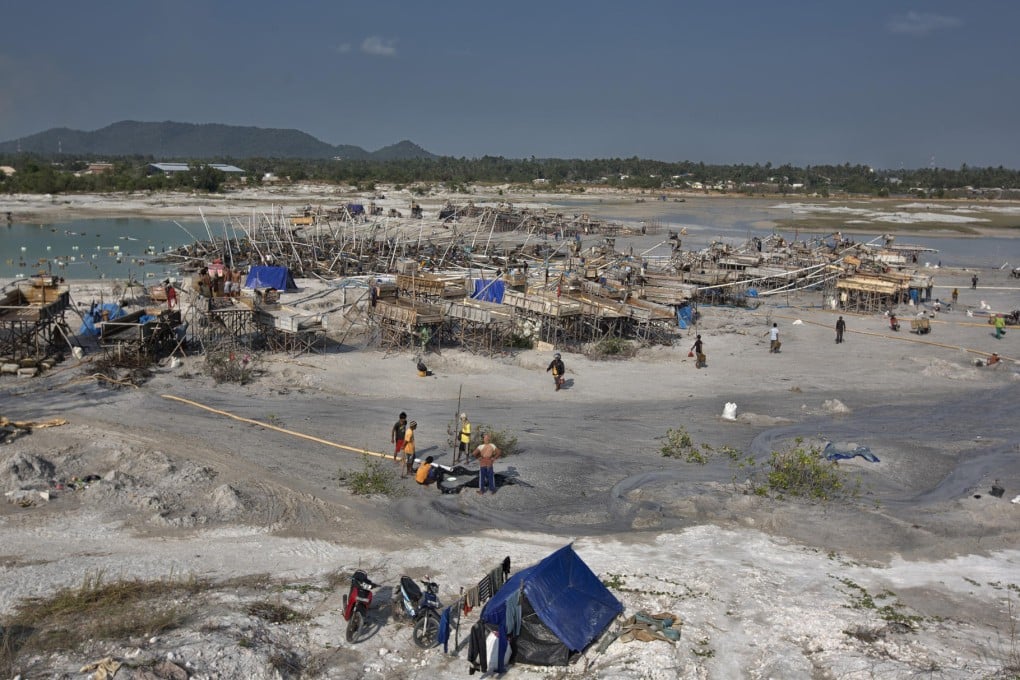Casualties of ore: tin mining is devastating the Indonesian island of Bangka
On the Indonesian island of Bangka, which provides 30 per cent of the world's tin - a vital component in the gadgetry few of us can do without - large-scale illegal mining is ravaging the environment and claiming lives, writes Matteo Fagotto. Pictures by Matilde Gattoni

It's 8am and in Rebo, a fishing village on the eastern coast of the Indonesian island of Bangka, dozens of ragtag, casually dressed young men are gathering around the small harbour, as they do every day, equipped only with a jerry can of fuel and a meagre lunch. Scorched by the white tropical sun filtering through the morning haze, they gaze silently at the horizon, waiting patiently for the small fishing boat that will take them to a series of wooden pontoons a few hundred metres offshore.
The pontoons might look as though they are fishing platforms but fish are not what these men are after. Something far more precious lies at the bottom of the sea here, something these men are willing to risk their lives for.
A third of the size of Hainan Island, Bangka is one of the two islands that comprise Bangka-Belitung province, which lies off the southeast coast of Sumatra. Bangka is home to a million people and provides about 30 per cent of the world's tin, a metal used in items such as car components, cans and plates - and the gadgets most of us now cannot do without.
Fifty-two per cent of mined tin is used as solder, holding together the circuit boards and components of today's smartphones, laptops and tablets. With the shipment of smartphones and tablets alone expected to have surpassed one billion and 184 million units, respectively, last year (40 per cent and 53.4 per cent year-on-year growths, according to International Data Corporation), the price of tin has skyrocketed, climbing from US$5 to more than US$23 per kilogram in the past 10 years.
Many of the world's top electronics producers have acknowledged that Bangkanese tin is used in their supply chains. But while Bangka is feeding the global hunger for electronic products, the mining of its tin is having a devastating effect on its environment and its people.
With the global demand for tin constantly exceeding supply, Bangka has become a mining free-for-all, with digging feverishly taking place both offshore and onshore. After 13 years of indiscriminate mining, the island's tropical forests are now pockmarked with thousands of moon-like craters contaminated with acidic water and heavy metals.
The industry was liberalised in 2001 and the local government gave mining and smelting licences to local entrepreneurs. As a result of increased demand - especially from private smelters with no mining rights of their own - the island became overrun with tens of thousands of "informal miners", a term that is used to refer to the pensioners, housewives, former fishermen, youngsters and everyone else who is involved in gathering the metal. According to the Mining and Energy Department of the local provincial government, 30 to 40 per cent of Bangka's population is active in mining, some working in private, licensed concessions, but the vast majority operating in unlicensed areas stretching as far as the eye can see, often in the middle of protected forests. Child labour is rife here, as are injuries and fatal accidents, for which the workers or their families receive no compensation.